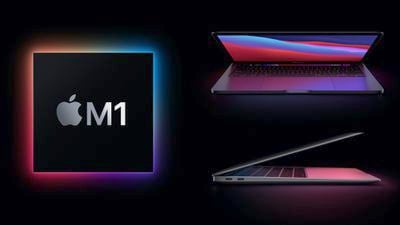With the launch of the M1 Macs last November, Apple officially began its transition away from Intel's chips, and it's clear from Intel's latest advertising campaign that the company is feeling threatened by Apple's decision.

In ads shared on Twitter, Intel has been highlighting the shortcomings of Apple's M1 Mac lineup. An ad this week, for example, points out the gaming capabilities of Intel chips. Intel mentions Rocket League, a game that is not available on Apple's platform.
Only a PC can power scientists and gamers alike. #GoPC — Intel (@intel) February 10, 2021
An ad from last week highlighted by 9to5Mac points out the lack of a touchscreen on Apple's Macs. "Only a PC offers tablet mode, touch screen and stylus capabilities in a single device," reads Intel's tweet.
Only a PC offers tablet mode, touch screen and stylus capabilities in a single device. #GoPC — Intel (@intel) February 2, 2021
Intel's tweets link to a video from YouTuber Jon Rettinger demoing laptops equipped with Intel chips and comparing them to the M1 Macs.
Apple's M1 chips received a lot of attention at launch due to their impressive speed and power efficiency, which is not matched by Intel chips. Earlier this week, Intel launched a series of "carefully crafted" benchmarks designed to prove that Intel's 11th-generation processors are better than the M1 chips, but the benchmarks were designed to favor Intel machines and were described by Apple columnist Jason Snell as "M1-unfriendly."
Intel's anti-Apple advertising is likely just getting started, as Apple plans to be largely free of Intel chips within a two year period. Apple is transitioning its entire Mac lineup to Apple silicon chips, with the MacBook Pro and iMac set to be refreshed next.























